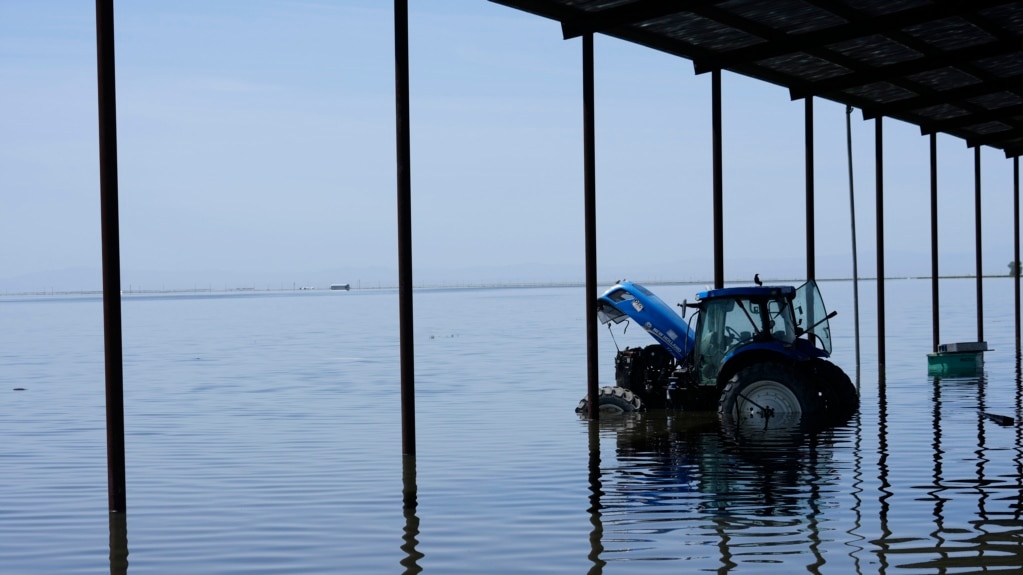This winter, the U.S. state of California received unusually large amounts of rain and snow. Now, people worry that some areas will flood as the snow in the Sierra Nevada Mountains melts.
Ron Caetano lives about half-way between the cities of Los Angeles and San Francisco. He is preparing to leave in case his community, called the Island District, floods.
“The water is coming this way,” said Caetano, who started a Facebook group to help organize his neighbors. “I am preparing for the worst and praying for the best and that’s all we can do.”
More than 100 years ago, the Island District area was under a large lake named Tulare Lake. At one time, Tulare Lake was the largest freshwater lake west of the Mississippi River. But dams and watering systems for agriculture caused it to disappear. However, in very rainy years, farmland can still get covered with water.
Experts say reservoirs near the area will likely receive three times more water than they can hold this year. That means officials must increase the amount of water they release from the reservoirs. If too much water is released, the area might flood.
The Island District has organized a community network to help prepare for floods. People are placing sandbags on elderly neighbors’ property to block possible flooding. And they are looking at reports from water officials, county officials, and from each other.
Tony Oliveira is a former county supervisor and the network’s administrator.
His family has lived in the area for generations. He said he remembers moving cattle and horses when the rains came in 1983, and will do the same this time, if necessary.
California has had very dry weather in recent years. Both cities and farm communities welcomed this year’s winter rains. If the weather gets warmer slowly, the snow will not melt quickly and there may be little or no flooding. But if the weather gets hot quickly, that will bring trouble from too much melting snow.
Officials announced plans to temporarily close parts of Yosemite National Park starting on April 28 because of threats of flooding. The park is about 270 kilometers east of San Francisco in the Sierra Nevada Mountains.
California governor Gavin Newsom visited the Tulare Lake area recently and said the situation will likely become worse.
“Where we’re standing likely will be underwater in a matter of weeks, if not months,” he said.
Dusty Ference is executive director of the Kings County Farm Bureau. He said more than 242 square kilometers of the area’s farmland has already flooded.
Nicholas Pinter is with the University of California, Davis Center for Watershed Sciences. He said the lake’s size has always changed because of California’s weather. He said farmers have known there would be times like the current situation.
He described the surrounding area this way.
“It has been an engineering problem all along,” he said. “This is a bathtub with no drain.”
I’m Andrew Smith.

